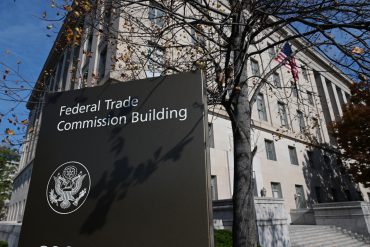
- AI & Regulation
- FTC
- Policy & Regulation
FTC Fines AI Detection Firm Over Claims as Oversight Tightens
5 minute read

Federal Trade Commission penalizes AI detection company for overstating performance as regulatory oversight of artificial intelligence claims intensifies
Key Takeaways
- FTC settles with Workado over false AI detection claims after finding the company’s detector achieved only 53% accuracy despite advertising 98% effectiveness
- AI detection market valued at $1.5 billion in 2023 with projected growth to $7.3 billion by 2032 as regulatory scrutiny intensifies
- New compliance requirements mandate scientific evidence for AI product claims, with Workado facing three years of annual FTC oversight
Introduction
The Federal Trade Commission has delivered its first major enforcement action against misleading AI product claims, settling with Arizona-based Workado over false assertions about its AI content detection capabilities. The settlement reveals a stark disconnect between marketing promises and actual performance in the rapidly expanding AI detection sector.
Workado claimed its detector achieved 98% accuracy in identifying AI-generated content, but FTC testing found the tool performed no better than chance at 53% accuracy. The agency’s action signals heightened regulatory scrutiny for AI companies making unsubstantiated performance claims.
Key Developments
The FTC investigation uncovered fundamental flaws in Workado’s product development and marketing approach. The company’s AI model originated as an open-source project created by Norwegian students specifically for academic content detection.
Workado repurposed this academic-focused tool for general content detection without adequate testing or validation. Independent analysis revealed the detector’s accuracy dropped dramatically when applied to non-academic content like Wikipedia entries and blog posts, achieving only 53.2% effectiveness.
The consent order prohibits Workado from making effectiveness claims without competent scientific evidence. The company must retain testing documentation, notify customers about the settlement, and submit annual compliance reports to the FTC for three years.

Market Impact
The settlement introduces new compliance costs and regulatory risks across the AI detection industry. Companies now face pressure to invest in rigorous testing protocols and maintain extensive documentation to support marketing claims.
The AI detection market shows strong growth momentum despite regulatory challenges, with valuations rising from $1.5 billion in 2023 toward projected $7.3 billion by 2032. This represents a compound annual growth rate of 19.1% driven by increasing demand for content authenticity verification.
Market dynamics favor companies with established testing capabilities and scientific validation processes. Smaller players lacking robust development resources may struggle to meet new evidentiary standards for product claims.
Strategic Insights
The FTC’s enforcement action establishes precedent for AI product regulation beyond content detection tools. Companies developing AI-powered solutions across sectors now face heightened scrutiny over performance claims and marketing representations.
Industry leaders are targeting detection accuracy rates above 95% within two years while expanding capabilities beyond text to include images, video, and audio content. Integration with existing platforms like learning management systems and content management tools represents a key competitive advantage.
The settlement creates opportunities for established technology companies with extensive testing infrastructure and regulatory compliance experience. These firms can leverage existing resources to meet new documentation and validation requirements more efficiently than startups.
Expert Opinions and Data
“Consumers trusted Workado’s AI Content Detector, but the product did no better than a coin toss,” stated Chris Mufarrige, Director of the FTC’s Bureau of Consumer Protection. The comment underscores regulatory focus on measurable performance standards rather than aspirational marketing language.
According to CyberScoop, the agency’s consent order reflects broader concerns about AI product transparency and consumer protection. Legal analysts view the settlement as the beginning of systematic AI industry oversight rather than an isolated enforcement action.
Research organizations like DARPA continue developing adaptable detection systems to address evolving AI manipulation techniques. This ongoing innovation cycle creates challenges for companies attempting to maintain consistent accuracy claims across rapidly changing technology landscapes.
Conclusion
The Workado settlement establishes new regulatory standards for AI product marketing and development practices. Companies must now balance growth ambitions with rigorous testing requirements and comprehensive documentation protocols.
The enforcement action demonstrates the FTC’s commitment to preventing AI-related consumer deception while supporting legitimate innovation. Market participants face increased compliance costs but benefit from clearer performance standards and reduced competition from unsubstantiated claims.







